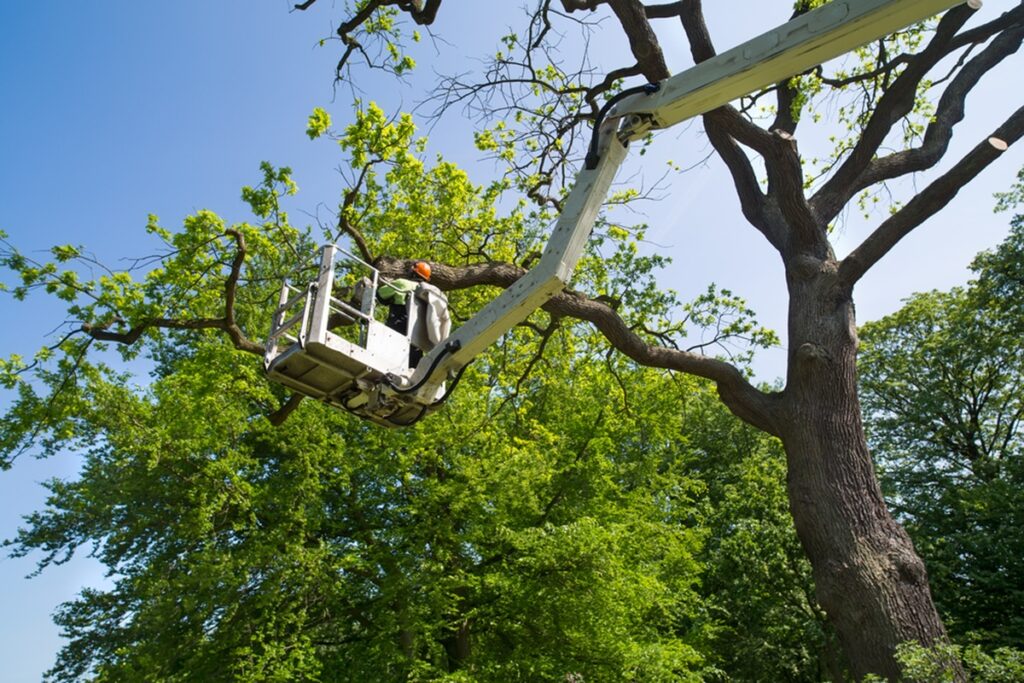The Local Authority will require Tree Surveys in Nottingham before approving Planning Applications
Nottingham is a city steeped in heritage and surrounded by nature, with a landscape shaped as much by its history as by its commitment to green infrastructure and sustainable development. As the East Midlands’ urban core continues to evolve through housing expansions, commercial redevelopment, and transport infrastructure upgrades, the role of trees in shaping a resilient, liveable city is more critical than ever. The city’s patchwork of urban woodland, historic parks, mature street trees, and riverside green corridors means that tree surveys in Nottingham have become an essential part of responsible development planning.
Nottingham boasts a strong green identity, reflected in areas like the Arboretum, Colwick Country Park, and Sherwood Forest, which is home to ancient trees and vital habitats. The city’s tree-lined avenues in neighbourhoods such as Mapperley, West Bridgford and The Park add not just visual appeal, but also biodiversity value and ecological connectivity. Nottinghamshire County Council has embedded climate mitigation and biodiversity targets into its local planning framework, and recognises trees as natural assets that must be assessed and protected where development is proposed. For developers and landowners, this means tree surveys are often a required component of the planning application process.
Protection for Trees in Nottingham
Like many major UK cities, Nottingham enforces legal protections for certain trees through Tree Preservation Orders (TPOs) and Conservation Area regulations. These designations apply to trees of significant public amenity, ecological or cultural value. Conservation Areas in parts of Nottingham such as the Lace Market, Arboretum, and Sneinton protect the character of their leafy streetscapes, and trees within these zones cannot be removed, pruned, or disturbed without express permission from the local planning authority. Breaching these protections can lead to enforcement action or prosecution.
A professional tree survey is usually required when applying for planning permission in areas where trees are present or nearby. This allows planning officers to consider how existing trees will be impacted by the proposed development and what mitigation or design adjustments may be necessary. If trees are covered by TPOs or located within sensitive zones, planning applications must be accompanied by detailed arboricultural evidence to demonstrate compliance with local policy and best practice.

British Standard BS5837 Tree Surveys
For most development projects in Nottingham, a BS5837 tree survey is the industry-standard assessment. This tree survey report follows the British Standard for trees in relation to design, demolition and construction, and must be carried out by a qualified arboricultural consultant. It ensures that trees are considered from the outset of site design, enabling them to be retained and protected where possible.
During a BS5837 survey, every relevant tree within the development site and the surrounding area is individually recorded. Information such as tree species, age, height, diameter, canopy spread, physiological and structural condition and life expectancy is documented for individual trees. Trees are checked for diseases such as ash dieback. Root Protection Areas are mapped to identify zones that must remain undisturbed during construction. Trees are then categorised to reflect their retention value – ranging from high-quality specimens worth preserving, to those in poor condition or with limited lifespan. Some sites may also require decay detection, aerial inspection or ground radar to understand tree condition below the surface.
Tree protection measures
One of the primary outcomes of the BS5837 process is the implementation of protective strategies for retained trees. These often include the installation of protective fencing around Root Protection Areas, restrictions on excavation and machinery movement, and the use of specialist no-dig foundations where necessary. If tree loss is unavoidable due to development constraints or health and safety risks, then mitigation plans such as native replanting or biodiversity offsetting are typically proposed. Using their arboricultural knowledge, experienced consultants will compile all this information in a tree report, which outlines how tree impacts have been assessed and how remaining and retained trees will be safeguarded throughout the construction phase.
Tree reports: the next steps
After the tree survey is completed, tree consultants present the data in a format suitable for submission to Nottingham County Council as part of the planning application. The tree survey report usually includes a Tree Constraints Plan, which shows tree locations, canopy cover and Root Protection Areas relative to the proposed layout. Where necessary, further documentation such as an Arboricultural Impact Assessment, Arboricultural Method Statement, and Tree Protection Plan may be produced to support more complex or sensitive proposals. The tree report may recommend that tree works are carried out: a tree surgeon may need to be engaged to carry out works on a development site such as removal of dangerous branches. The tree report recommendations ensure that development can proceed without unnecessary harm to Nottingham’s valued tree stock.

Tree Surveys: Risk Management
Tree surveys in Nottingham are not limited to applications for planning consent. Landowners, housing associations, and public bodies regularly commission tree surveys for safety reasons and to cover potential liabilities. A school tree survey Nottingham may be needed regularly along with tree reports in public parks. Proactive inspections help to identify decay, defects or instability, ensuring that trees are safe for people, vehicles and buildings nearby. With climate change bringing more frequent storms and extreme weather, tree risk assessments are becoming a vital part of managing green infrastructure across the city.
Expert Advice for Tree Owners
If you’re planning a development in Nottingham, managing trees on your land, or need guidance on protected trees within a Conservation Area, our consultancy can support you at every stage. We deliver a diverse range of tree services in Nottingham and across the East Midlands, combining in-depth local knowledge with national standards, ensuring compliance. Our clients include local authorities, architects, developers, domestic clients, private clients, commercial clients and private householders. Our experienced arboricultural team specialises in BS5837 surveys and tree risk assessments, ensuring that your project remains compliant with both local council policy and environmental best practice.
Request a Free Quote for Tree Surveys
Whether you require a pre-planning tree survey, an arboricultural report for a planning condition, or general advice on tree management, we’re here to help. Our arboricultural consultancy provides free, no-obligation quotes in the Nottingham area and we can arrange a site visit at a time that suits your schedule.
Our professional service includes providing concise reports, advice on tree management and customised solutions. Get in touch using the contact form on this page or call the number above to speak with a member of our team and find out about our Nottingham services and the cost effective solutions we can help you with.